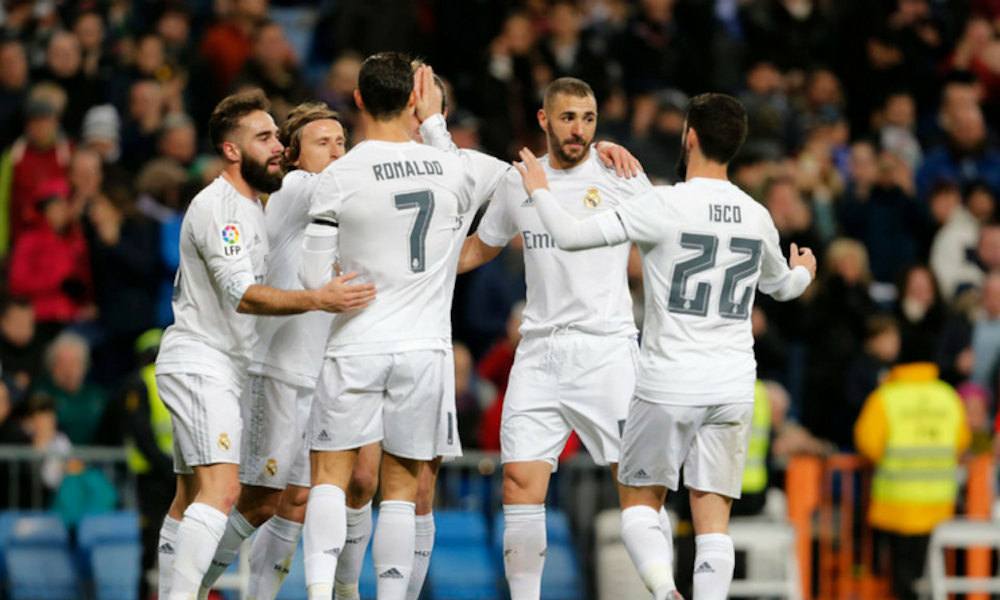On August 19th, LaLiga Santander will start their 87th season. Real Madrid, starting ambitiously as always, are the favorites for the title. No wonder 500 million fans want the club to win. And there will be more!
Real Madrid has won 33 championship titles and 19 trophies in Spain. With 23 officially recognized UEFA and FIFA titles, Real is the most successful football club in the world. Many clubs would probably rest on their laurels with such successes.
Those responsible have realized that success nowadays is no longer just “on the field.” Besides the field, football teams compete over attention, followers, and sales.
“Real” as a media company
To be at the forefront of digital transformation, Real collaborates with Microsoft. The goal: “Put the fan at the center.” Real aims to achieve this goal in all digital activities. In the end, this strategy will at the least mean new sales opportunities for Madrid.
“Microsoft is thrilled to help Real Madrid achieve its goal of transforming the digital experience of its 500 million fans around the world,” said Sebastián Lancestremère, general manager of Microsoft Sports.
Lancestremère on BBC: Real Madrid is not only a sports team, but also a media organization – one that offers not just sports, but also entertainment, a social platform.
99 per cent of fans cannot be at the Santiago Bernabéu stadium. For the other millions of fans, it is therefore important for the team to create new, exciting content and services. One example: the concept of a virtual stadium where fans can enter from various terminals at any time.
Microsoft’s cloud and analysis expertise provides interesting statistics and lets fans compare different games.
Real = agile?
The most exciting content will be on the field for 90 minutes. The people responsible are also looking for additional content that will be as entertaining as possible. There are looks behind the scenes on training sessions. How do fitness exercises work? What are the most unusual forms of training?
Until now, this often meant one-dimensional communication. The association produced extensive content, hoping that some of it would work. “The goal now is that we are very agile in terms of content,” said Lancestremère. “The fan base is very fragmented, socially and geographically.”
One of the largest fan bases: Indonesia. And like other top European clubs, Real Madrid wants to expand its presence in China. Besides these languages, the club offers content in Spanish, English, French, Arabic and Japanese.
“Football fans are not waiting fifteen, ten or even five years,” Lancestremère adds. “They consume whatever they want, when they want it, and on what channel they prefer it.”
Real Madrid as a “social brand”
Real Madrid estimates that it has fifteen channels to maintain digital relationships with its fans. These include, for example, apps, the website, social media, an online shop, club TV, membership and ticketing.
Here, there are “1st Party” channels, which belong entirely to Real Madrid. There are also “2nd Party” channels, which use the Real logo but are operated by other companies. In the social media (3rd Party) Real is active on eight platforms. In addition to classics like Facebook and Twitter, the club is also, for example, on the Japanese platform Line.
Real Madrid and other top clubs have to keep progressing. According to Lancestremère, this is necessary to reach a young, technically experienced audience.
“Millenials will account for up to 40 percent of the world’s population by 2020. They spend 1.5 hours daily on social media, they watch videos, they play games. ”
The club receives helpful information and data. What do the fans like? Which content do they prefer? What is their buying behavior? Real Madrid can optimize its services on this basis. This applies to their own products as well as partner products. Real still cooperates with thirteen business partners, e.g. Adidas and Emirates.
For future deals, the going on the digital offensive means: Real can offer potential sponsors a measurable (digital) audience alongside their brand value.
Still room to grow?
Brand valuation consultancy Brand Finance has already ranked Real Madrid as the most powerful football club in the world. And yet the club still does not fully exploit its potential.
David Haigh is CEO of Brand Finance and advises those responsible to capitalize on their sporting success even more consistently.
Despite the success story of Real, Manchester United has a higher brand value (1.733 billion dollars vs. Real’s 1.419 billion dollars). Haigh recommends prioritizing off-the-field activities as much as those on the field.
Real Madrid as Netflix competitor?
The creation and implementation of new digital business models is thus critical to success.
When it comes to Lancestremère, Real Madrid must also compete with vendors such as Netflix. What’s hot: producing and broadcasting content – activities that go beyond those of a traditional football club.
“Sports clubs must become entertainment. Football is part of the entertainment industry 365 days a year,” said Rafael de los Santos Navarro, Global Digital Director at Real Madrid, at the Football Business Forum in London.
They want to build and monetize interactions with fans. Real Madrid is “mainly a football club, but also a content producer.” This is how Real brings value to the fans. “We need to think about all our sales and to position ourselves for the revenue we want to achieve in the future.”










